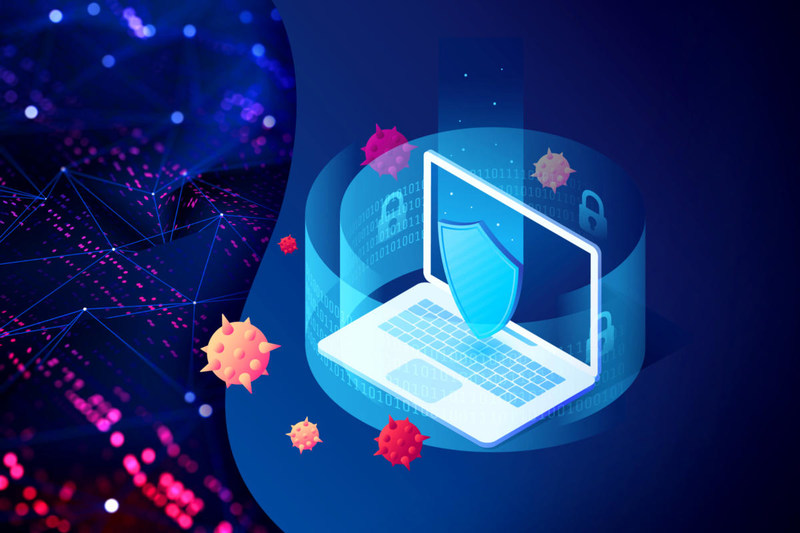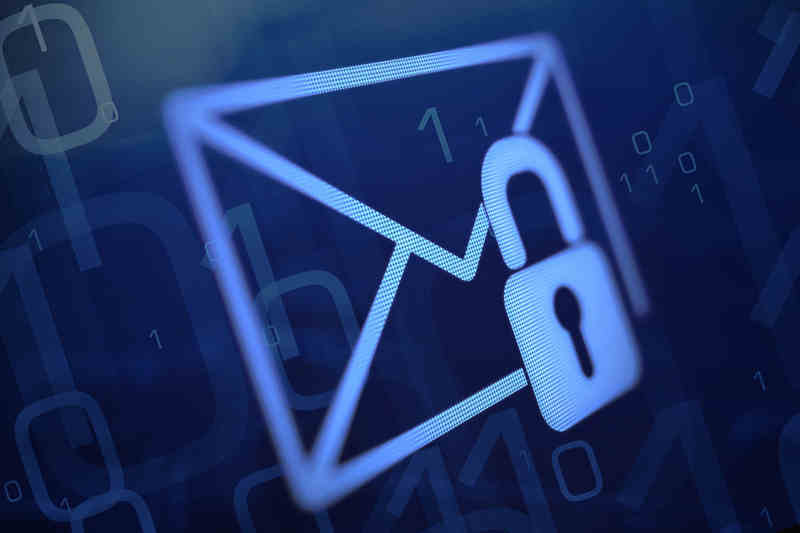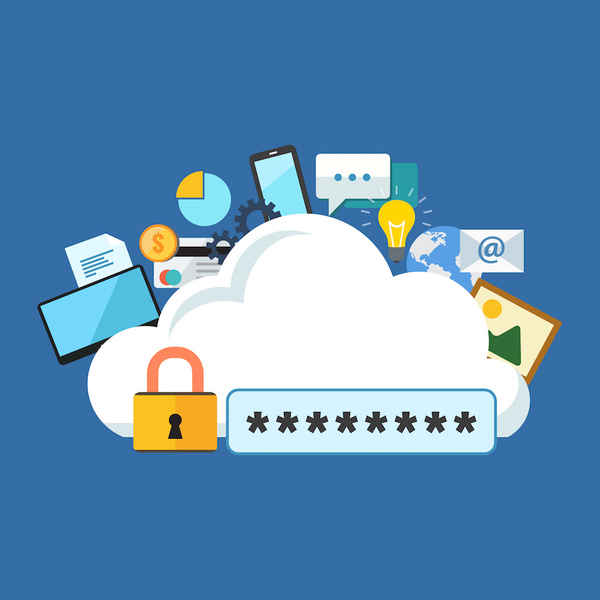The Cybersecurity Swiss Knife, 5 Tools Every System Needs


- What Are the Five Online Security Tools?
- Antivirus Software and Malware Protection
- Secure Your Emails
- Manage and Create Strong Passwords
- Use VPNs
- Final Thoughts
It’s no secret that cyberattacks and security breaches are on the rise. Every few weeks, news about online threats makes headlines. It reached a point where it became normal to hear about such incidents, even if it involved massive-scale data leaks.
Therefore, it’s crucial to update your security software. As attacks become automated and much more frequent, leaving your devices without proper protection can bring a lot of trouble.
However, keeping yourself safe doesn’t have to be complicated or expensive. A few smart software choices will vastly increase your online security. And most of these programs are on auto-update, so all you have to do is install them.
Here are the must-have cybersecurity tools.
Content Overview
Firewall


Firewalls are necessary tools that every device should have. A lot of users might take them for granted, but they are your first line of defense against malware.
If you’re unsure of what a firewall does, it functions as a barrier between two networks. In the standard case, between a personal computer and the rest of the internet.
While most operating systems come with a built-in firewall, it’s better to install an aftermarket program. Basic firewalls are easy to breach or shut down. They also don’t have state-of-the-art features to detect threats.
On the other hand, top firewall systems have analytical tools that can predict attacks. They do so by inspecting traffic patterns and other markers.
Companies use two firewalls to add an extra layer of protection. The first one allows access to public-facing servers, and the second protects your internal networks. That way, if any malware breaks into your public files, it must destroy another barrier before it can access anything vital.
Most antiviruses come with firewall support, which means that you probably already have one. You just need to remember to activate it when you’re configuring your settings.
Another easy way to set up a firewall is to enable it on your router. That’s the easiest, cheapest, and fastest way for your home network. To do so, log in to your router and enable the firewall option. As a result, you’ll be able to prevent attacks before they affect your devices.
For extra protection, I recommend you set up a VPN connection directly on your router to secure all your devices. (For further explanation about VPNs, keep scrolling).
And it’s always a good idea to invest in a premium firewall, especially if you regularly connect to public WiFi networks.
Antivirus


This point seems so obvious; you might be wondering why we’ve decided to include it. But even today, in 2019, almost 50% of Americans don’t use any form of antivirus software on their devices.
Premium antivirus software scan your computer’s files for infection from:
Viruses
A computer virus is a malware that can alter how a device operates and spread from one computer to another. It works by attaching itself to a file or program to execute its code. Once it infects your device, it can cause some severe damage like destroying software and data.
Malware
Malware, or malicious software, is designed to gain unauthorized access to your device or damage it. Users usually trigger it by clicking on a suspicious link or file which they receive via email or other mediums. Viruses, spyware, ransomware, and Trojan horses are all forms of malware.
Cybercriminals use them to steal your data and make money.
Spyware
Hackers use spyware to track and steal your Internet traffic, then sell it to advertisers and data firms. They can also grab hold of other sensitive information like credit card or banking details.
DNS Hijacking
Domain Name Server (DNS) hijacking is an attack that redirects DNS queries to malicious websites. DNS translates your request when you input a web address like netflix.com so that your browser can load the page. To execute such an attack, perpetrators can install malware on your device, take control over routers, or intercept DNS communication.
DNS hijacking is used to display ads and make a profit or to access and steal your sensitive information.
Keylogger
Keystroke loggers, or keyloggers for short, are programs that monitor everything you type on your keyboard (computers and smartphones). Cybercriminals use this technology to steal valuable information like login or credit card credentials.
Employers also use keyloggers to monitor their employees’ activities to make sure they are not wasting time or trying to access non-related work websites like social media platforms.
Trojan Horses
A trojan horse is a malicious software that tricks users into thinking it’s legitimate. It often poses as a genuine file you can download when you receive it via email. But once you do, this malware will wreak havoc on your device.
It can steal or damage your data and even disrupt your computer’s performance.
But elite antivirus programs can do much more than the above. That includes active scans of your web browsing, inspecting downloads to make sure they are virus-free, and email defense.
These brands will also auto-update on a weekly, if not daily basis, to ensure they stay on top of all sorts of malware. Thay will also regularly scan your device, eliminate any potential danger, and notify you of any breach.
Email Security Software


The biggest vulnerability in any system is always the person sitting at the screen. For corporations, it’s even worse. One employee clicks the wrong attachment, and the entire company network could be in danger. So think of the massive threat if a firm has thousands of employees.
In 2012, Saudi Arabian oil giant Aramco was a target of a cyberattack that damaged some 30,000 computers. Attackers used a virus called Shamoon that infected workstations, forcing the company to shut down its main internal network for over a week.
Interior Ministry spokesman Mansour al-Turki said that the investigation did not show any involvement of Aramco employees. However, some expect that a worker clicked on a malicious link that he received via email.
Cybercriminals use fraudulent emails to trick users into clicking on the attached link inside them. They usually impersonate bank employees and send messages that are similar to the authentic ones. The attack is called Phishing, and if you fall victim to it, hackers can grab hold of sensitive information like bank accounts and credit card details.
Thankfully, standard antivirus software is generally good enough to stay on top of emails. But you should also remember to follow safe email protocols and identify spam emails.
Recently, a far more insidious threat using email has emerged.
Spymail
Spymail uses the same tracking code that allows your email providers to see if you received or read your messages. Because of that, spymail methodology isn’t generally picked up by standard antivirus software.
Even though it doesn’t directly compromise your systems, spymail jeopardizes vital information. That includes tracking your online activity and usage, your device’s specs and possible vulnerabilities, and even your physical location.
It’s subtle information-gathering methods like this that caused the 1300% spike in email scams. Pair that with the 3-billion-dollar monetary loss, and it becomes evident that you have to protect yourself.
A tool like MessageControl analyses these subtle tracking tags and protects you from the threat of spymail. It also keeps you safe by updating you on emailing habits and vulnerabilities.
Password Management Software


Another crucial method to defend your online accounts against threats is to create strong passwords for each one. A lot of people use personal information like birthdays or pet names to form their passwords. Such details are now easily attainable thanks to social media platforms like Facebook, Twitter, and Instagram.
That gives hackers a broader chance to crack your passwords and access your accounts. And some people even use their browser’s built-in features to auto-generate and remember passwords.
Needless to say, those are terrible ideas.
Browser-based password savers are incredibly insecure, and an advanced hacker would be able to retrieve this information in minutes, with barely any effort. Instead, you should use specific, dedicated password protection software.
A sound password management system offers a lot of benefits to make your life simpler and safer, which include:
- Keeping all of your passwords in one secure space.
- Identifying weak or vulnerable passwords.
- Auto-generating strong passwords.
- Automatically updating passwords on a rolling basis, in case any become compromised.
- Syncing across multiple devices.
- Two-factor authentication for extra security.
You can use reputable third-party password generators that create long and robust codes. Those include uppercase letters, symbols, and numbers. And if you’d rather build your own password, why not use a checker to see how strong your password is?
Virtual Private Networks (VPNs)


To ensure total online security, privacy, and anonymity, VPNs are your go-to destination. This is the ultimate cybersecurity tool that can keep you safe from prying eyes.
This service has a vast server network with multiple locations across the world. Once you connect to one of them, your VPN will reroute your Internet traffic through the server you selected. Furthermore, it will give you a new IP address that matches your server’s location.
As a result, you’ll appear to be in a different location, which means no one can determine where you actually are. That includes hackers, Internet service providers, and government agencies.
And that’s not all. VPNs use military-grade encryption to encrypt your traffic and data. So, in case someone manages to intercept your online activity somehow, they won’t be able to see it.
However, not all brands are the same. That’s why you should subscribe to elite providers that offer premium features. One of those is the Advanced Encryption Standard with 256-bit keys (AES 256-bit) encryption. That is the strongest protocol in the VPN industry and is impossible to crack.
Another crucial feature is the zero-logs policy, which means that your VPN won’t collect or share information about your online activity or connection.
And top VPNs have much more benefits like 30-day refund policies, apps for the majority of operating systems, and speedy servers. They can also avoid the geo-restrictions that streaming services like Netflix or Hulu apply.
Five Necessary Online Tools – Conclusion
Cyberattacks are getting more advanced and dangerous with every passing year. Gone are the days when a free antivirus was sufficient. If you want to stay safe online, you have to stay ahead of the curve. That requires smart decision making and proper software. The earlier you start, the better.
If you have any tips or tricks, or a particular piece of software you use to keep yourself secure online, make sure to let us know in the comments below.



